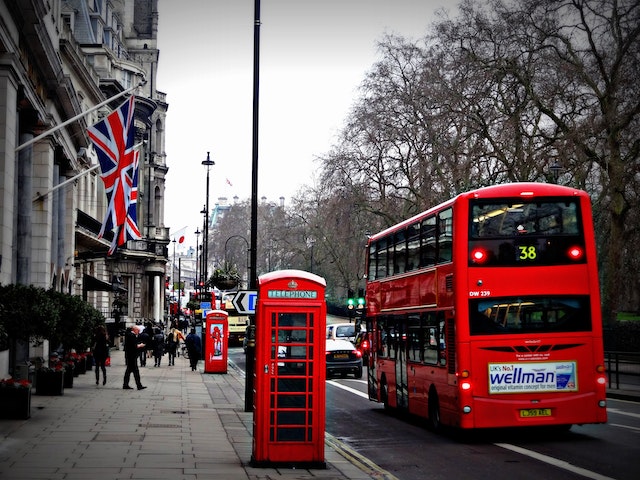
When did the British empire end? People take the return of Hong Kong to China on July 1st, 1997 as the end of the British Empire, but there are three points that could be taken as the end.
The British empire has its start with Elizabeth I in about 1562 when she gave permission for her ships to attack Spanish and Portuguese ships coming back from the New World. Her successor, James I, made peace with the Spanish and set about making colonies of his own. Jamestown was the first settlement by Britain in the New World. The king and government realized the possibilities and more settlements soon sprang up. The triangular trade of sugar, rum, and slaves across the Atlantic rose up with the settlements.
Britain’s reach started to expand, but it wasn’t an Empire. Private companies were set up to take advantage of the trade and to offset the risk by having a large number of backers. These companies became enormous and had their own armies. They were able to control entire countries. The government looked to the colonies for trade, but they did not directly control them. All of the colonies had their own mini governments that were responsible for the governance. In the second half of the 18th century, Britain claimed Australia and New Zealand, and lost the American colonies.
The British empire came into its own from 1815 onwards. Napoleon was defeated and Britain had no other real rivals. Plus the head start in industrialization had given them a technological advantage. The companies that were controlling several colonies were nationalized and 400 million people were added to the British empire. By 1914, it was the largest empire the world had ever seen. It covered 25% of the world and 23% of the population.
So, why did the British empire end? It would be nice to be able to say that Britain saw the error of her ways and happily gave independence to all of the countries she had invaded and subjugated, but that isn’t true. The British empire ended because Britain couldn’t afford to keep it. After World War II, Britain was all but bankrupt. It was only thanks to an American loan that the country could keep going.
The first date that could be taken as the end of the British empire is 1947. In 1947, President Truman issued the Truman Doctrine, which said that the United States would provide political, military, and economic support to all countries that were being threatened by external forces. He didn’t say it, but he meant the Soviet Union. In February of 1947, Britain sent a telegram to Washington saying that they didn’t have the troops or the money to defend Greece or Turkey against the Soviets. Truman’s secretary of state said, “the British are finished.” Many people take this as the end of the empire, but the British hung on to their colonies for a few more years.
After the war, there was civil unrest in many of Britain’s colonies and Britain couldn’t afford to fight them. They had no choice but to let them go. They tried to make sure that each colony had a democratically elected government, but they weren’t always successful. Britain didn’t try to fight for its colonies, as France did. They realized that there was nothing they could do. However, Britain still tried to be a player on the world stage. They liked to think that there were three global superpowers: the US, the soviets, and Britain. This was shown to be false in 1956 with the Suez Canal Crisis. Britain wanted to keep control of the Suez Canal, which had been nationalized by President Nasser of Egypt. Britain and France used Israeli forces to engineer a situation where they could move in and repossess the canal. American President Eisenhower was so angry with this that he refused to back Britain and threatened to sell US reserves of the British pound unless Britain withdrew, which would destroy the British economy. Britain had no choice and withdrew, tail between their legs. All of this proved that Britain was no longer a player on the stage. Some people say that this was the end of the empire because Britain could no longer do anything unilaterally and they had to do what America said.
Between the end of the war and 1965, most of the empire gained independence. Britain set up the commonwealth to try and keep a semblance of what they once had, but the empire was gone. The only remaining colony was Hong Kong, which Britain returned to China on July 1st, 1997. With this, the last British colony was gone. Technically, this is the last day that Britain had any colonies, but it hadn’t been an empire for a long time. Definitely since the second world war, and possibly even after the first. And this is what I learned today.
Sources
https://www.theweek.co.uk/tags/british-empire
https://en.wikipedia.org/wiki/British_Empire
https://www.politico.com/magazine/story/2014/08/the-sad-end-of-the-british-empire-110362/
https://history.state.gov/milestones/1945-1952/truman-doctrine
https://www.wealthandpower.org/part-4/51-collapse-of-the-british-empire
https://www.historic-uk.com/HistoryUK/HistoryofBritain/Timeline-Of-The-British-Empire/
